Movie Review – Zero Dark Thirty
Principal Cast : Jessica Chastain, Jason Clarke, Jennifer Ehle, Mark Strong, Kyle Chandler, James Gandoflini, Harold Perrineau, Mark Duplass, Frederic Lehne, John Barrowman, Jessie Collins, Edgar Ramirez, Fares Fares, Scott Adkins, Jeremy Strong, Joel Edgerton, Chris Pratt, Callan Mulvey, Taylor Kinney, Mike Colter, Frank Grillo, Christopher Stanley, Stephen Dillane, Mark Valley, John Schwab, Reda Kateb, Homayoun Ershadi, Yoav Levi, Ricky Sekhon.
Synopsis: A CIA agent spends 11 years hunting down Osama Bin Laden in the wake of the September 11 attacks on the USA.
*********
Kinda Murky Thirty.
It’s hard to argue about the fact that the single biggest manhunt in history was all centered on Osama bin Laden. The mastermind behind the 9/11 attacks on New York and Washington became world enemy number 1, outwitting and outrunning – and outfoxing – the United States and her Allies, until the well-publicized attack on his Pakistani compound which saw the infamous terrorist leader killed by SEAL Team Six, on May 2nd, 2011. Throughout it all, intelligence organizations across the globe spend millions of dollars trying to ferret him out of hiding – the man was a billionaire and could buy his way into never being found, but with perseverance and persistence, the CIA cracked his whereabouts and gave President Obama the green-light for a sortie into Pakistani territory to capture or kill the al Qaeda leader. Zero Dark Thirty is Kathryn Bigelow’s salute to the dedication of the CIA intelligence community and their allies, as well as the brave men of that SEAL team who went in to hostile territory and came out with the mother of all successes. Bigelow’s previous film, The Hurt Locker, which saw her snag a Best Director Oscar back in 2010, was also a militaristic-based film, with an indie-doco feel to it that is reproduced here with Zero Dark Thirty. Does Bigelow stand a chance come Oscar time for this film to win Best Picture [at the time of writing, Bigelow wasn’t nominated in the Best Director category – Ed.] or will it be too obvious a choice for the Academy? Has Jessica Chastain done enough to finally grab that Oscar for acting, which she missed out on for The Help a few years back? And is Zero Dark Thirty the definitive Osama film we need to see, or is it a hubristic glorification destined for inevitable retracting down the track?
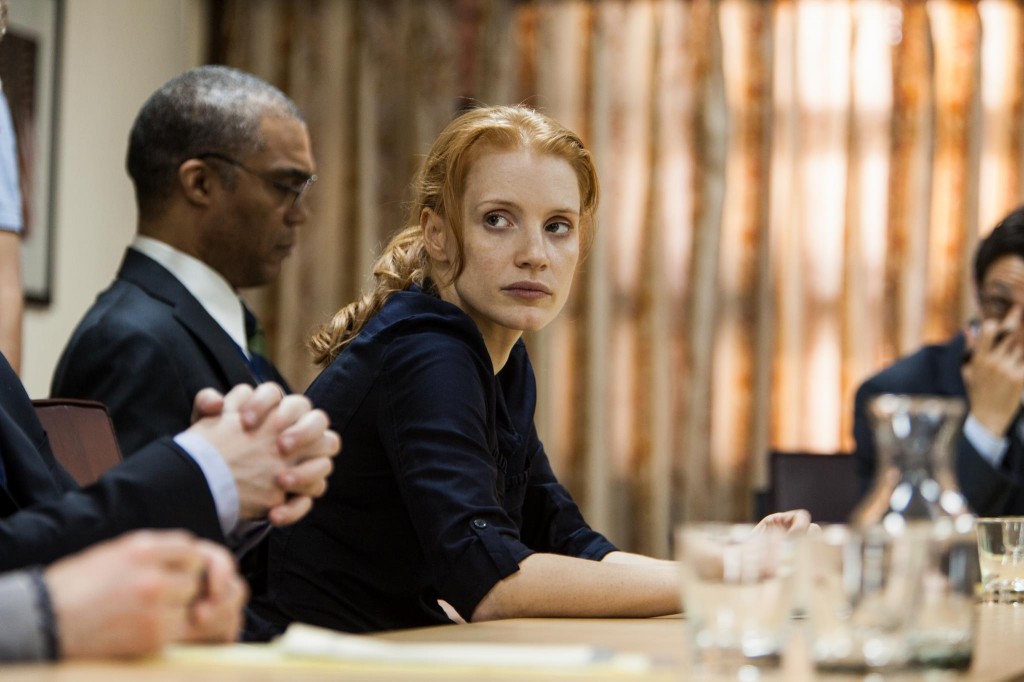
Maya (Jessica Chastain) is a CIA operative sent to the US Embassy in Pakistan to follow her investigations into al Qaeda ringleader Osama bin Laden, the mastermind of the September 11 attacks. With her focus solely on him, she bears witness to the torture of captured al Qaeda members and associates, under the direction of fellow CIA Dan (Jason Clarke). As they slowly begin to gather information about a “courier” for bin Laden, named Abu Ahmed, whom everybody knows but nobody ever seems to see. When one of Maya’s CIA friends, Jessica (Jennifer Ehle) is killed in a suicide bombing while trying to gather more intel and recruit a potential insider to the al Qaeda network, Maya becomes more driven to capture bin Laden than before – Maya and Jessica survived the Islamabad Marriat Hotel bombing in 2008, while Maya also survived a potential assassination by armed men outside her residence. Throughout the hunt, with political motivations changing through public opinion, CIA Section Chief Joseph Bradley (Kyle Chandler) is removed from his position, while their bureau chief George (Mark Strong) tries to persuade the National Security Adviser (Stephen Dillane) and eventually CIA Director Leon Panetta (James Gandolfini) to launch the attack on the eventual target – a fortress-like compound in Abbottabad, Pakistan, where bin Laden is believed to be hidden away.
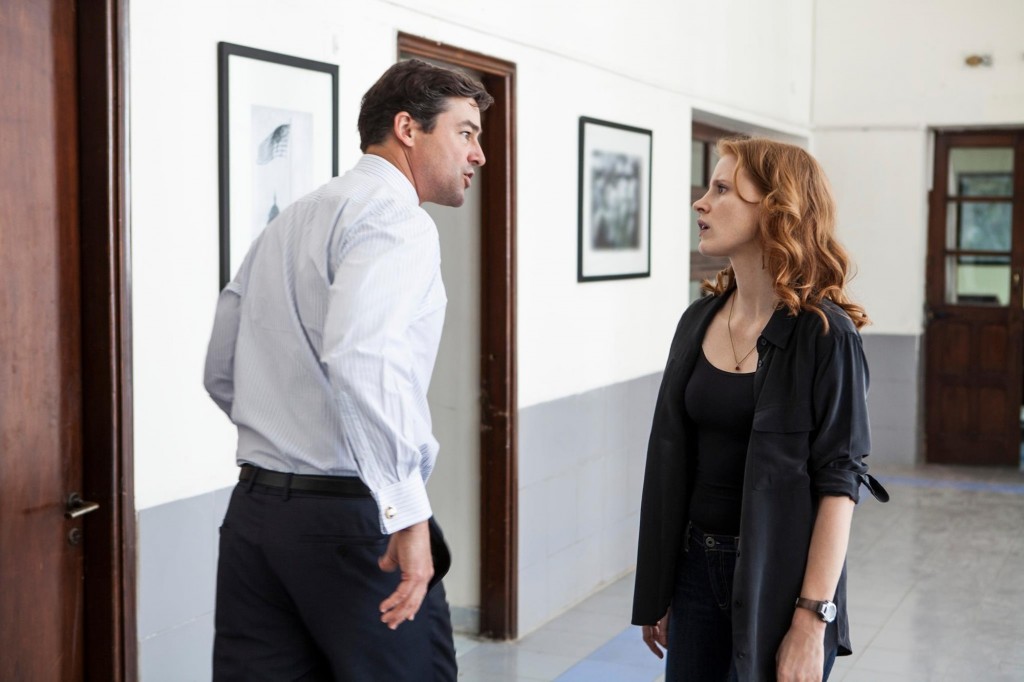
Like most folks in the Western world, I was appalled and horrified by the destruction on 9/11, and also like most, was delighted by the eventual killing of the mastermind behind that attack, Osama bin Laden, back in 2011. While it’s unlikely the world will ever really hear about most of what went on behind the scenes in the intervening decade between 9/11 and May 2, 2011, as far as intelligence gathering and plotting and scheming from the CIA and the international intelligence community, Zero Dark Thirty attempts to lift the veil somewhat on the major points of interest along that long, murky journey into torture, rendition and eventual success. This is a film that some might find hard to watch – it opens with a sequence featuring the continual torture and interrogation of an al Qaeda associate – but it’s a film most people should watch. Allowing for a measure of creative latitude on Bigelow’s part, and understanding that “names have been changed to protect the innocent yadda yadda…”, Zero Dark Thirty becomes a documentary thriller in many ways. The outcome of the story is a known quantity, and in this regard much of the potential tension is removed, but for the most part there’s a palpable sense of “gonna getcha” rawness to proceedings that elevates it beyond simply a by-the-numbers history lesson.
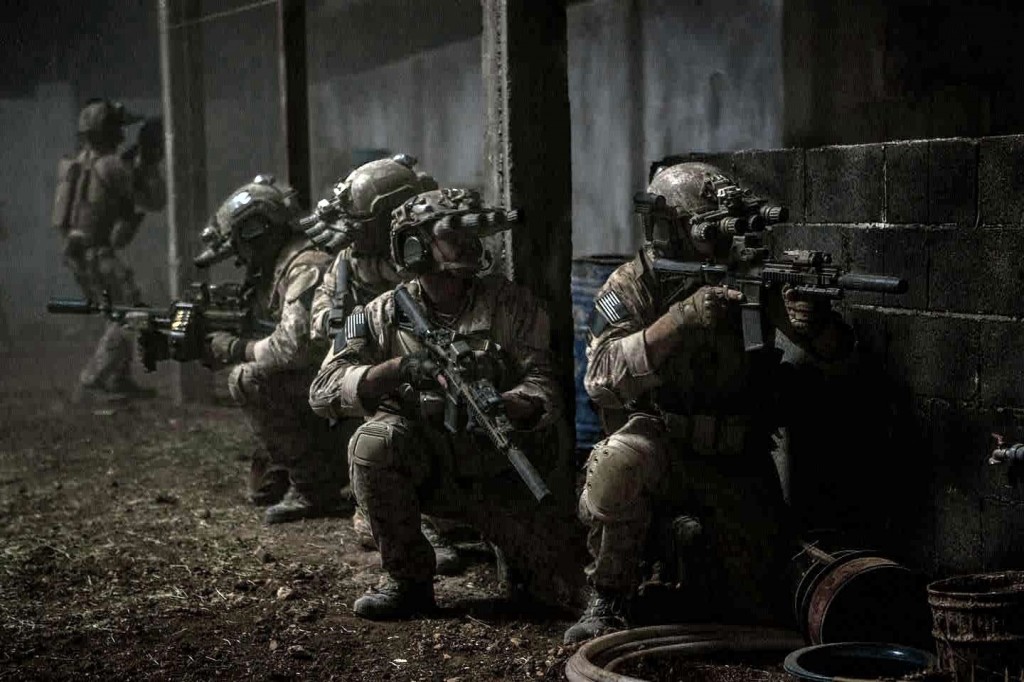
The story is told primarily through the eyes of CIA agent Maya, played wonderfully by Jessica Chastain. Chastain gives Maya a real journey to go on, starting the film with a retching horror at methods of torture, to her eventual use of those same methods herself, to the stoic, analytical and highly driven agent she eventually becomes in her mission to see bin Laden dead. While I thought her character was a bit one-dimensional, given the script offered absolutely zero back-story on her (which is fair enough, I guess, given that she’s a CIA agent), Chastain’s ability to inhabit the character even without this crucial information is still effortlessly essayed. I wish the script had offered us a little more depth to her drive – she never socializes, is completely dedicated to her mission, and seems to lack a basic human drive to let off steam once in a while – but if this character is based on a real-life CIA agent, then more power to her. Chastain’s co-star early in the film is Dan, played by Aussie actor Jason Clarke. Clarke is the been-there-seen-it CIA leader who shows Maya the ropes, and his charming, boyish nature is completely at odds with the serious, torturous way of life he’s chosen to lead. I thought Clarke did a solid job, even if like Maya’s character, Dan is merely a 1-dimensional creation designed to bounce off Maya’s initial innocence. Dan comes back later in the film to aide Maya’s reporting to the CIA higher-ups to get bin Laden taken out.
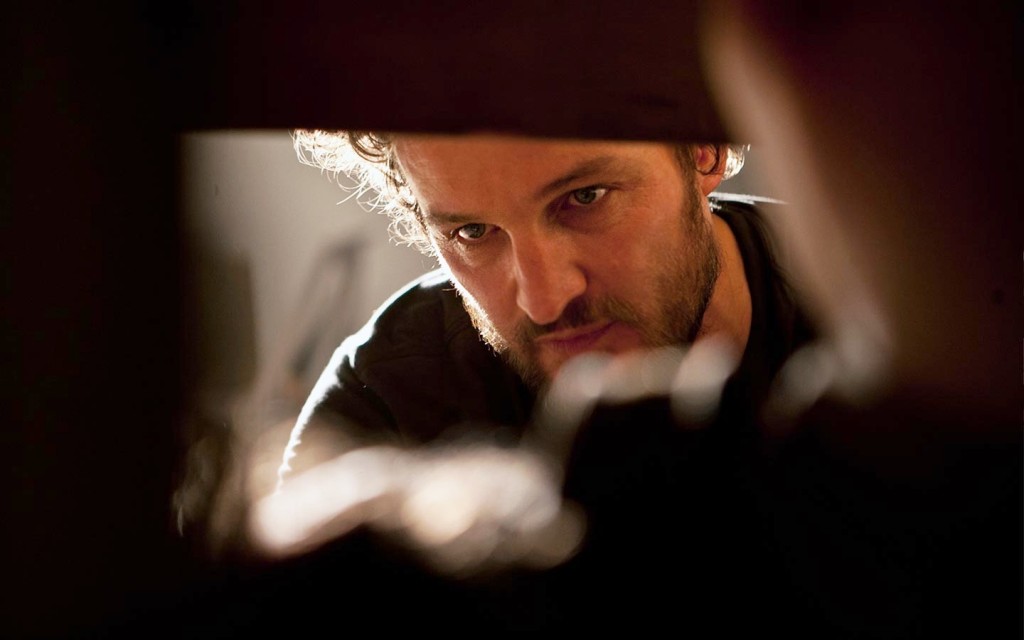
In smaller roles, but with no less crucial moments, are Kyle Chandler and Mark Strong, who represent the coal-face of CIA leadership. Chandler’s an actor who looks surprisingly snug in the role of CIA Section Chief, here the real-life Joseph Bradley, and he’s convincing in his somewhat antagonistic portrayal against Maya. Mark Strong is always solid, offering a commanding portrayal of Bradley’s superior, George. Jennifer Ehle plays the tragic figure of Jessica, a CIA agent who met her death at the hands of a suicide bomber in Camp Chapman, while trying to meet with a potential inside source to al Qaeda. Ehle’s role, like the rest in the cast, is limited emotionally, although her screen persona is as close as we’re likely to get to approachable. Not too many of the rest of these people are folks who offer us much to bond with – they are all on a mission, and the mission is everything. Another Aussie actor, Joel Edgerton, plays a member of the SEAL team sent in to get bin Laden, although the net result of his appearance amounts to nil emotionally. Nice to see another Aussie doing well in Hollywood, though.
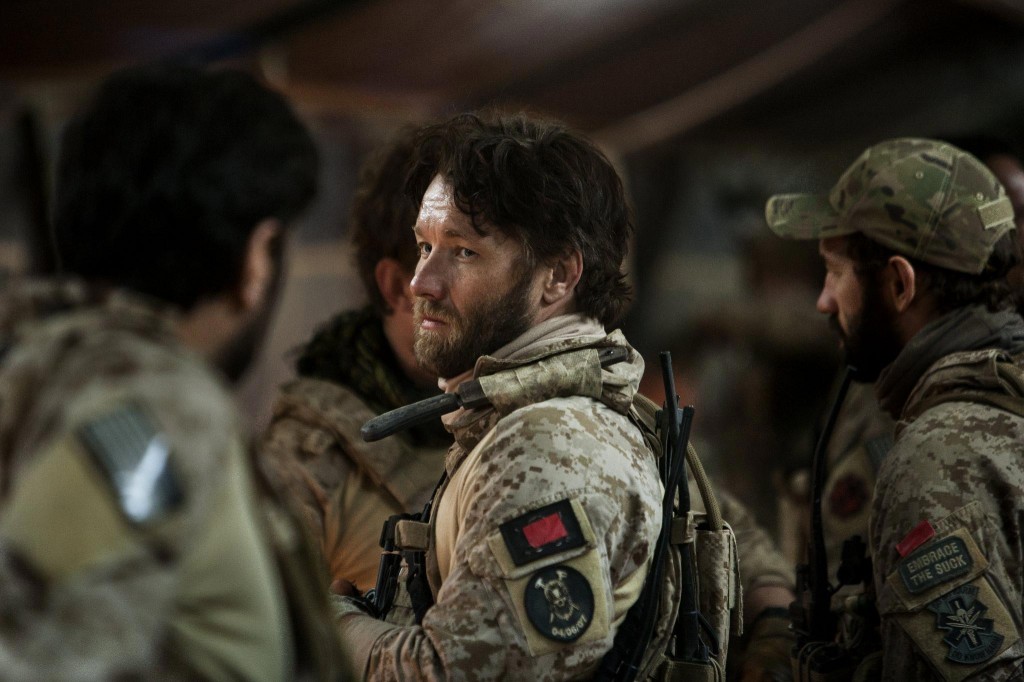
One of the problems I had with Zero Dark Thirty stems not from the lack of depth to the characters – it’s semi-documentary, after all – but with the tempestuous narrative through-line of the movie. Maya’s a backroom player, and as such, has little direct action with what transpires in this quest other than to order others to carry out assignments. The final act of the film, in which the brave SEAL’s engage in bin Laden’s Abbottabad compound, sees Maya reduced to a sideline player, almost disappearing completely from the film as the military do their thing. I realize that having an intelligence operative like Maya don the flack-jacket, night-vision and automatic weaponry might have not been accurate to the story, and it’s the way things actually happened, but this limited interaction with Maya during such a critical part of the film robs us of a more direct emotional moment as she realizes her mission is coming to – and has come to – an end. Until the SEAL’s arrive, the film’s a fairly decent CIA-themed detective film, with Maya firmly in the eye of the storm, but she’s moved out of the line of fire once the SEAL’s take flight.
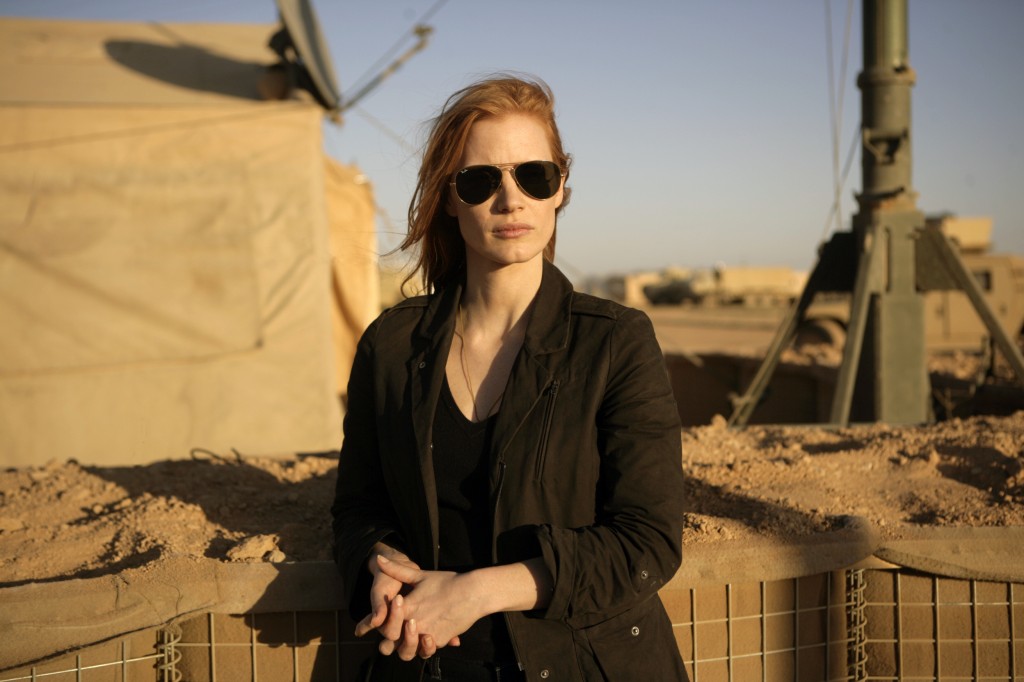
Mark Boal’s screenplay, which tries to delve into the intricate web of bin Laden’s associates and al Qaeda operatives, is difficult to decipher at first. Bigelow eschews subtitling the names of her characters, many of whom we don’t really know the name of even though they take large part of the film, and there’s a definite lack of dumbing-down for audiences too slow to keep up. Boal’s screenplay has a raw authenticity to it, a slow, methodical gravity of intricacy and tension, which ramps up the closer the film comes to its target. Potential histrionics are removed in favor of what initially appears to be a perfunctory examination of events, but by the time the plot gets to the discovery of the hidden compound in Abbottabad, you’re completely sucked in. As I mentioned, the final act of actually getting bin Laden sees Maya left in the background, a powerless audience member where up til then she’d been the driving force in gaining the intel required to trigger the mission in the first place. While I was watching, I kept having this nagging thought in that I wondered what Maya would do once they did get bin Laden. After all, she’d been trying to find him for a decade, a decade with no other mission in life, and I had to think that her emotional state would be either completely overwhelmed with joy, or some kind of sadness that it was all over. I wish Boal’s script had tried to delve into this a little more, but alas, it is not to be.
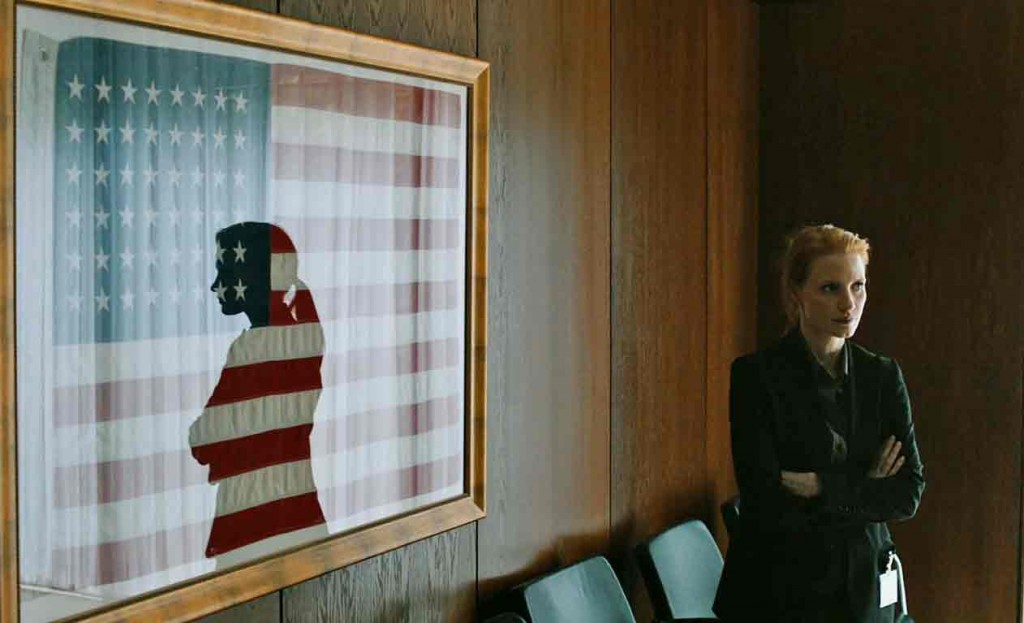
As director, Bigelow brings her considerable clout to the project, a project she’d been working towards since her Oscar win for The Hurt Locker. Visually, the film’s ochre-brown color palette complements the dusty, gritty nature of pursuing the worlds most wanted man [an aside – who is the world’s most wanted man now? – Ed.] and Bigelow’s camerawork is once more somewhat jagged in nature. Much like her work on Hurt Locker, Bigelow keeps the camera off-kilter, usually hand-held and up-close to the subjects; it’s typically the kind of framing and style I hate, the sort of thing Tony Scott would do to try and heighten emotion somehow, but to me it just irritates – keep the camera still so I can figure out what’s going on. Thankfully, though, this style complements the story well, and this off-kilter feeling remains throughout the movie. Bigelow’s handling of the raid on the bin Laden compound is the highlight of the movie, with the much-documented chopper crash, the near-discovery of the truth about what was happening by woken neighbours, and the bravado-free tenacity of the SEAL’s themselves all giving the mission a tight-lipped fortitude in the face of potential catastrophe. Indeed, the fact that much of the raid occurs in vocal silence, with only minimal instructions and conversation taking place, is more a truthful point to take out of this than any chest-beating, gung-ho, flag-waving patriotic wash it could have been.
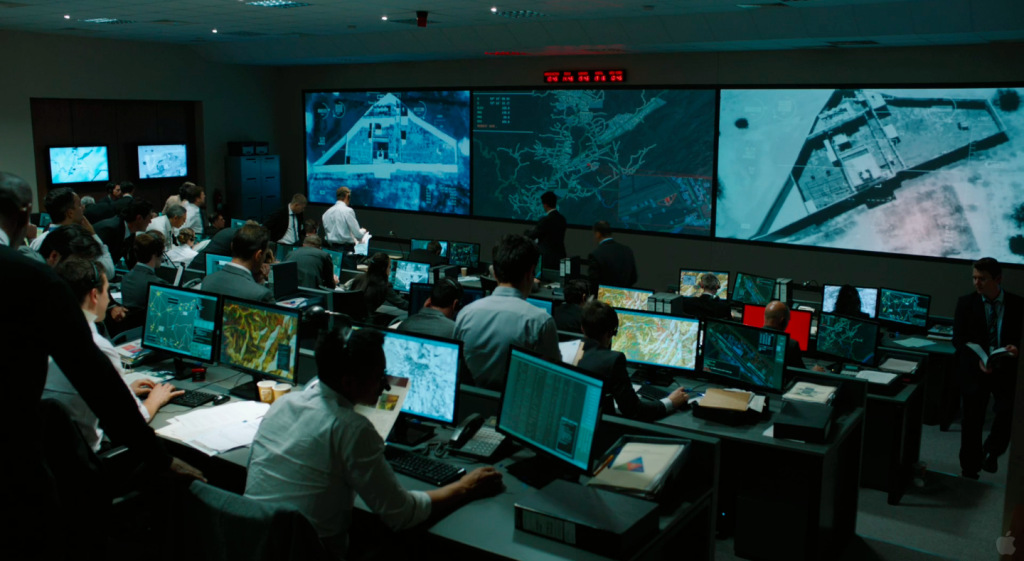
As mentioned earlier, the fact that we all know how the raid went down mitigates a lot of the dramatic tension in the final half-hour of the film. Perhaps we’re still too close to the act itself to allow ourselves to really become involved in a dispassionate way, in order to give us the distance to really fall for the story again. There’s some tension involved, because of the very nature of the conflict, and in another ten or twenty years it’ll probably be completely riveting to folks who weren’t around when this thing actually happened, but for now I just felt removed from the potency of the story because I knew what was going to happen. In saying that, there’s no denying Bigelow’s attention to detail and cinematic craft – she wiggles every drop of potential from the story, even though many of the characters lack dramatic impetus at a humanistic level. At times, this film is truly gripping. At other times, it’s a harrowing race against time (across years, not days or months) to capture the most wanted man in the world. Probably not since Hitler has a modern figurehead created it’s own cottage industry seeking to topple it, and if anything Zero Dark Thirty gives us an inside look into just how this outcome was achieved. Kathryn Bigelow’s film is taut, well scripted, well filmed and occasionally harrowing (the torture sequences aren’t anything new, really, for anybody who has seen films like Rendition or Body Of Lies) and well deserving of its Oscar nomination. I’m inclined to find it probably not as adrenaline-pumping as an American audience might, considering the takedown of bin Laden was primarily (not exclusively) an American conceit, but as a story of dedication and passion to capture bin Laden, it’s a terrific analysis of the times we all lived through. Zero Dark Thirty is excellent.

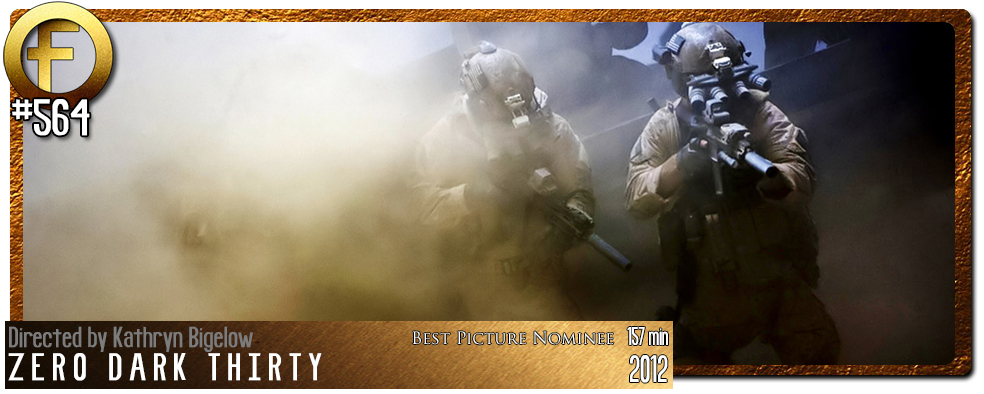
I was all set to see this last Wednesday but a parking issue at the local cinema finished any hope of seeing it that day – long story!
But, of course, it is the film I REALLY want to see because it appears everyone is talking about it. And everyone seems to have quite a strong opinion of its merits or lack of. What interests me with your review Rodney is that you chose – perhaps by design – not to talk too much about one of the key areas of criticism to have befallen it – this idea that it somehow endorses illegal torture tactics – or, enhanced interrogation techniques as the CIA calls it. Wondered what your take on that was?
From what I've read and heard about the film I think my mindset going in has to be that it is a dramatic retelling of real life events. I think Boal/Bigelow have come under criticism because they've pushed this idea that it is based on extensive research and therefore tries to depict things as truthfully as possible. However, I think this is what could do the film more harm than good.
My recent post Top 10 Female Buddy Films
You raise a good point, Dan, I never mentioned the depictions of torture within the film as either promoting this aspect of the mission, or criticizing it. Truth is, the film does neither. It's an unfortunate fact that the US probably did use some of the methods of torture to elicit information they might have otherwise missed had they not done so, although this is an argument for a forum other than this one here – what I will say is that the film doesn't hold anything back or sanitise what happens, which I guess one could construe as tacit approval in some way. Personally, I've seen worse torture in pure fiction films, so the scenes didn't affect me in the kind of way I think Bigelow was trying to, but their depiction, their very inclusion, is still a touchy subject for the Powers That Be apparently. I certainly wouldn't condone this kind of treatment to any prisoner (although terrorists don't play by our rules, so why should we when we must fight them, I guess) but I can understand why it was done at the time. Keep in mind this film plays out over a decade, and much of what occurred was during the red heat of the incursion into Afghanistan and Iraq, while the US was bombing the crap out of the Tora Bora mountains, so contextually it's probably reasonable to expect this kind of activity.
With your last point, I would like to add to this review that I think it doesn't matter if the events depicted are exactly as they occurred in real life – it's Hollywood, after all, so I doubt it – but there's no denying the research which went into this film was (by all accounts) quite extensive. A few dramatic liberties aside, one would have to say it's probably as close to an accurate depiction as we're ever likely to get in our lifetime. I doubt this will do the whole story much harm, however; I think it'll do just the opposite. I left the film feeling quite proud of the effort that went into finding bin Laden, and the fact that even a decade on, the hunt continued with as much fervor as it did the day after the towers fell.
Parking problems? Man, I'd catch a cab to go see this one!